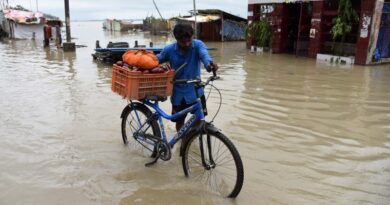Droughts threatening health of wetlands globally, find Australian researchers

Wetlands have come to assume a significant role in ensuring water and climate security in any country, given their role in the water cycle and various hydrological functions. Their loss is now being treated as a serious an environmental crisis.
Now, a team of Australian scientists has shown how droughts are threatening the health of wetlands globally. The team from the University of Adelaide has highlighted the many physical and chemical changes occurring during droughts that lead to severe, and sometimes irreversible, drying of wetland soils.
“Wetlands around the world are incredibly important for maintaining our planet’s biodiversity and they store vast amounts of carbon that can help fight climate change,” said study author Luke Mosley from the University of Adelaide.
According to the researchers, wetlands can suffer “water droughts” both from the effects of a drier climate, and also when excessive water is extracted or diverted that would normally flow into them.
The review paper describes how drought often leads to severe cracking and compaction, acidification, loss of organic matter, and enhanced greenhouse gas (for example methane) emissions.
In some cases, droughts can lead to very long-term (less than 10 years) and irreversible soil changes, with major impacts on water quality when soils are re-wet after the drought ends.
“We have seen many examples of how the drought in the Murray-Darling Basin in Australia has caused major issues including acidification of soil and water due to acid sulfate soils exposure in wetlands,” Mosley said.
“This review highlights substantial gaps in our global understanding of the effects of drought on wet soils and how they will respond to increasing drought,” Mosley added.
The researchers revealed that effects can be different in different soil types and different regions of the world.
The spatial distribution of drought studies shows there has been limited assessment in a large number of regions, including south and central America, Africa, the Middle East, Asia and Oceania. Many of these regions are predicted to be vulnerable to drought impacts due to climate change.
“At a global level, wet soils are highly vulnerable to the effects of climate change and need to be protected given the very high environmental and socio-economic values they support,” the study nored.
“It is our sincere hope that the information in this review contributes to protecting these valuable ecosystems,” the authors said.



